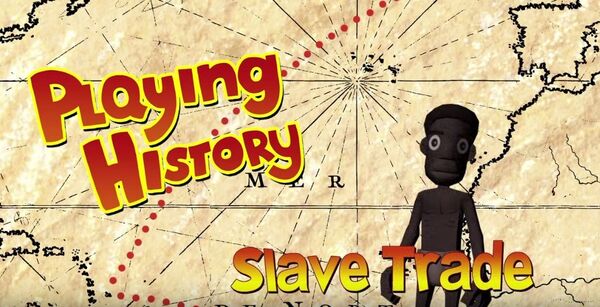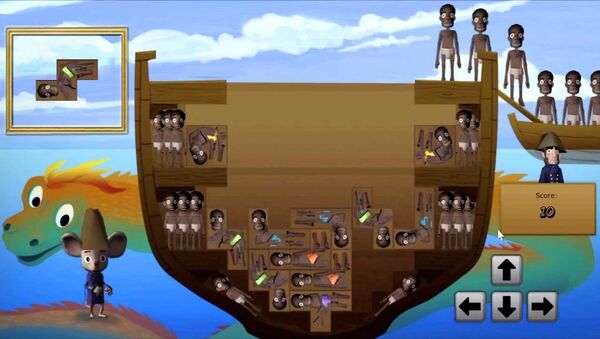The game 'Slave Tetris' was pulled by Serious Games Interactive, following widespread international outrage at the nature of the game, which critics described as being insensitive, dehumanizing and offensive to African people.

CEO Simon Egenfeldt-Nielsen said the game was ultimately removed due to the offense it caused some people, but told Sputnik the intention of creating a slave-themed Tetris game was to try and make people think about some of the horrors of slavery.
"The goal with Tetris was to create the feeling of stacking people like objects, and to make people reflect on how this has happened during slave trade. If you look at how slave trade ships were built and loaded, the resemblance to blocks is scary — it makes you think how people could treat others like that and objectify them. This was an important point we thought."
A number of people took to social media to express their disgust at the game, with some describing Slave Tetris as racist and insensitive towards people of African descent.
— Rafranz Davis (@RafranzDavis) August 30, 2015
So someone decided it was a good idea to make a game called "Playing History: Slave Trade" to help others learn about slavery. No.
— Lauren @DragonCon (@iamlaurenp) August 30, 2015
Among the critics was Frank Noschese, a physics teacher at John Jay High School in the US, who was quoted in American blog ThinkProgress saying that some topics were totally inappropriate when it came to Internet games.
"I just think the whole concept of making it a game — it trivializes the atrocity of slavery. There are some topics that are just off limits. There was a debate back and forth and people were saying it was a valuable learning tool."
"It’s not like I’m anti-game but with the games being so powerful you really have to be sensitive about what you’re trying to do with the game. The CEO, part of his defense is it makes kids see the atrocity of it. It doesn’t. It doesn’t."
Gaming Industry Needs to 'Mature'
While acknowledging the anger the game caused, Egenfeldt-Nielsen believes the gaming industry should step up and address more serious social issues as the medium becomes more popular.
"I also think it is important to mature the game medium that is fast becoming the favorite medium for many — to not just be for entertainment, but also for serious topics. We could lose a large group of people if we don’t at least try to engage them on their home field. Besides, that research shows that games as an engaging and interactive tool can be quite a useful educational instrument."
He said the aim of Slave Tetris was to enlighten and educate people, as well as to provide a forum for discussion. However, the CEO conceded that it wasn’t having the desired effect, given the public backlash.
"The reason why we removed [Slave] Tetris was because we didn’t want it to distract from the main focus of the game, and to capsize the importance of the subject."
Egenfeldt-Nielsen said that instead promoting a discussion about slavery issues, the game merely lead to a series of "auto-responses" of criticism, which contributed to the company removing the game.
"You can say that we tried to bend towards people to create a room for discussion rather than just stonewalling," he said, adding that he believed it was "more important to keep a space open for discussion than be stuck in the same place."
However Noschese hit back saying that there are certain historical events that shouldn’t be used as educational gaming tools, especially if children are exposed to them.
"I don’t think kids have the capacity yet to do that and the topic needs to be conveyed in a different way. What about the Holocaust? Would you try to get people in railway cars or would you try to manage getting the trains from all across Germany into all of the different concentration camps?"


